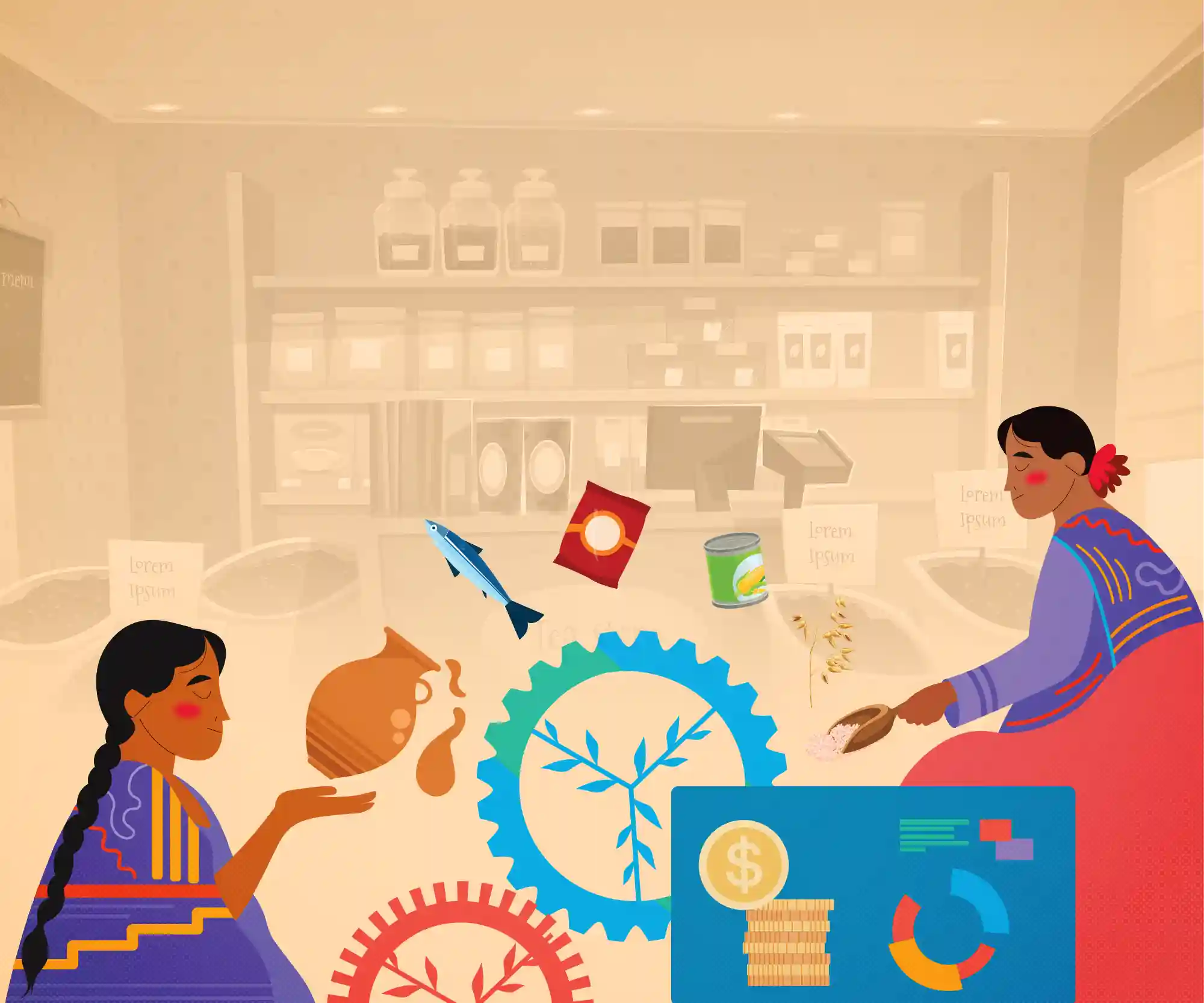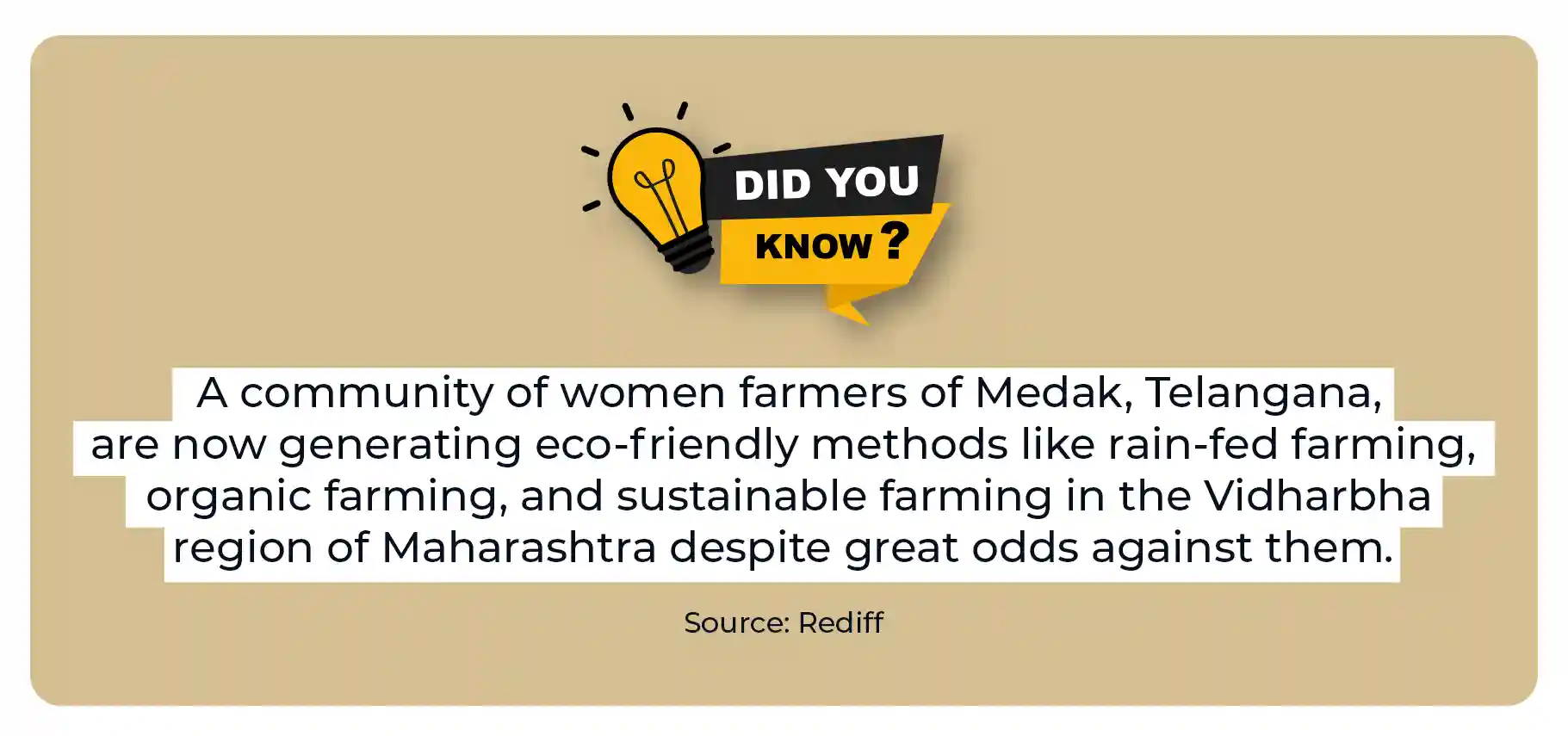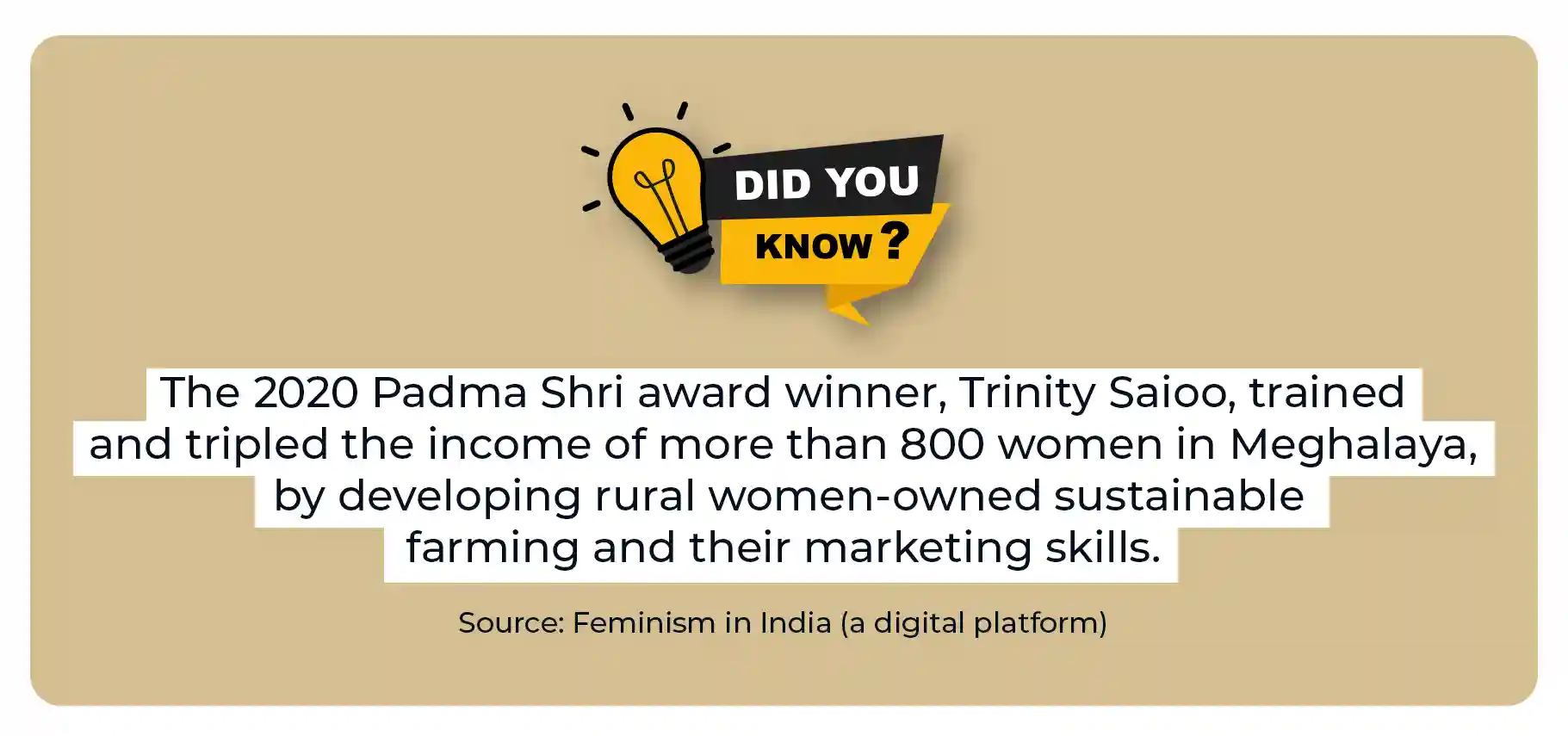
In the past, people always knew the origins of the food on their plates. However, gradually, supply chains became so complicated that tracing their sources became impossible. Moreover, as the market and population demand increased, food producers resorted to increasingly unsustainable practices. Unfortunately, these practices pose significant health and environmental concerns for consumers. According to the Food and Agriculture Organisation of the United Nations, Sustainable Food Systems must be economically, socially, and environmentally sustainable. For this, there needs to be a shift towards:
- healthy dietary practices,
- sustainable food production practices,
- and more inclusive supply chains.
Based on this framework, there are four significant ways in which women entrepreneurs and their food enterprises are making a difference for their fellow humans and the planet:
Indian women entrepreneurs in the health and fitness sector
So much food is marketed as natural and organic but is actually heavily processed in a green guise. Preeti Deshmukh started Food Matters in 2017 to provide customised healthy meals and snacks suitable for hectic urban lifestyles. This company converts the theoretical diet plan offered by health and fitness professionals into practical, healthy, and tasty food for fitness enthusiasts, athletes, and working professionals. By 2018, the business had grown into a full-fledged commercial kitchen serving more than 2000 clients daily. Today, Food Matters has more than ten franchises in various cities. The meal boxes with calorie and protein stickers perfectly meet customer requirements.
In 2019, Preeti launched another company, Food Nest, which manufactures healthy food products and provides end-to-end solutions for those who want to tackle the same. For example, they produce bars, khichdi, poha, flakes, muesli made with millet, and diabetic bars and flours.
Another player in the Indian health food sector is Jananom Natural Nutrition by nutritionist Chitra Murali. The products by this brand promote gut health through powders enriched with multiple plant proteins. With a limited but popular product portfolio that includes 30 plant porridges and 30 multipurpose mixes, Jananom Natural Nutrition products are affordable and range from INR 250-300.

How Indian women entrepreneurs are upholding tradition
Previously, Indian households mostly consumed home-cooked food, and they limited the quantity of meat in the meals. However, as lifestyles and dietary practices changed over the recent years, some women have taken it upon themselves to bring us back to our roots. Traditional food is wholesome, filling, and healthier; when combined with sustainable packaging, it’s a good deal all around.
Manjari Singh (35) and mother-in-law Hiranyami Shivani (58) co-founded The Chhaunk, a Gurgaon-based food delivery service seeking to bring Bihari cuisine into the mainstream. Apart from making the traditional Bihari food easily accessible, the duo also promotes the historical and cultural background of the dishes. And in doing so, Manjari and Hiranyami are preserving this lesser-known Indian subculture. With plastic-free, biodegradable glass packaging, the Chaunnk’s products are leak-proof and easy to freeze and store. In addition, they offer proper meals, snacks, and beverages.
Plant-based/vegan products
Often, eco-friendly, organic options are not easily accessible or affordable. Sonal, the founder of WhiteCub, was inspired to start producing vegan milk products in 2013 in response to the awful conditions that cattle are subjected to in the dairy industry. With a giant carbon footprint, dairy production is, at present, highly unsustainable. WhiteCub is now available all over India, providing vegan alternatives for all major dairy products like vegan butter, curd, ice cream, etc. They also have dairy-free desserts like fruit yoghurt, cookies, and hazelnut-cashew spread.
Second Nature by Dipti Motiani is another solid domestic and international presence in this field. This company places a high premium on sustainable food production, safety, worker welfare, and responsible water use. For 25 years now, they have been supplying cold-extracted fruit and vegetable juices to Europe. Dipti Motiani is also the Vice President of the Processed Fruits division at Second Nature’s parent company, Freshtrop Fruits Ltd., whose major exports are grapes and pomegranates.

Bringing back sustainable agriculture
Throughout India, female agriculturalists have been trying to heal the land, creating job opportunities by upholding/reviving traditional agricultural practices. For example, Aparna Rajagopal is a lawyer-turned-farmer who has turned barren land in Uttar Pradesh into a food forest and animal sanctuary. She has also taught the local community about healthy and environment-friendly practices. Meanwhile, in Bihar, teacher-turned-entrepreneur and recipient of the Nari Shakti Puraskar (annual award in India which recognises outstanding work in women empowerment) Bina Devi, aka ‘Mushroom Mahila’ leads another form of progress. She has been educating women in self-employment through fungiculture, as well as promoting sustainable practices like rice intensification.
While India already struggles with food security, 40% of the food produced in the country gets wasted. Keerthi Priya and Odapalli Vijaya Laxmi’s Telangana-based operation, Nurture Fields, is commendable for its innovative methods of dealing with post-harvest wastage. They work with marginalised farmers to convert their excess produce into dehydrated (sun-dried) and preserved fruits and vegetables (spinach, papaya, tomato, cabbage). Additionally, they produce soup, curry, and juice mixes. In doing so, Nurture Fields contributes to the sustainable foods market and helps the agricultural community.
More potential than ever from Indian women entrepreneurs
India’s current organic food scene is male-dominated; women are primarily employees rather than employers. However, Indian women have always used traditional sustainability practices in farms and households. Indian households reuse most containers that come into the house—jam jars, malted food tins, ice cream containers—you name it. Further, they use kitchen waste to feed the livestock or fertilise the backyard herb garden. Now, the need of the hour is to use this connection with food. By recognising the demands at various points along the food chain like these women have, we can build inclusive and sustainable food systems that benefit the environment, not to forget—other women.


